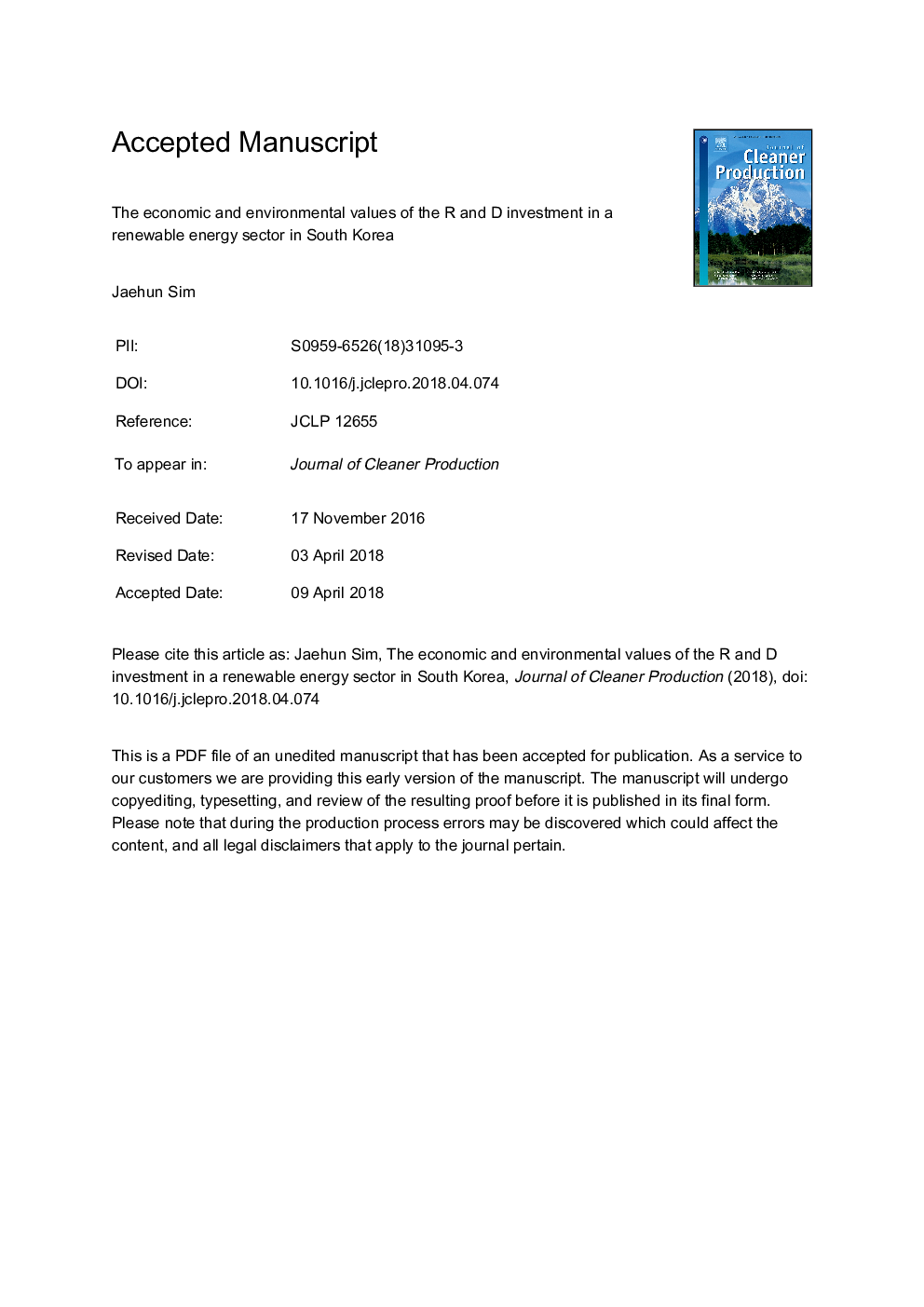| Article ID | Journal | Published Year | Pages | File Type |
|---|---|---|---|---|
| 8095125 | Journal of Cleaner Production | 2018 | 29 Pages |
Abstract
Although a fossil-based fuel economy has allowed South Korea to rapidly develop, the economic growth means that South Korea is now one of the largest sources of carbon emissions. The South Korean government has recently made a renewable energy investment plan to convert the economy based on fossil fuels to an economy based on renewable energy. In order to analyze the economic feasibility of the Research and Development (R&D) investment required for this change, this study evaluates the R&D investment in the six types of renewable energy sources -- biomass energy, waste energy, photovoltaic energy, solar thermal energy, marine energy, and wind power energy, while considering several uncertainty factors -- a renewable energy production amount, an R&D investment amount, a unit price, and a risk-free interest rate. This study utilizes the system dynamics approach using the Black-Scholes model and conducts sensitivity analyses of the uncertainty factors. The results indicate that the renewable energy production amount has a relatively large influence on both the R&D investment value and the carbon emission reduction amount. In the Monte Carlo simulation, a risk-free interest rate has annually a small impact on the R&D investment value.
Related Topics
Physical Sciences and Engineering
Energy
Renewable Energy, Sustainability and the Environment
Authors
Jaehun Sim,
